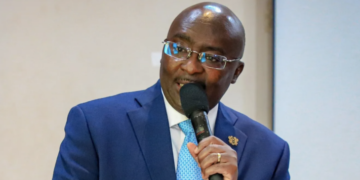The Ghana Trades Union Congress (TUC) says it will resist any attempt by Government through an International Monetary Fund (IMF) sponsored programme to impose restrictions on sectors of the economy that will bring hardships to workers.
Dr Yaw Baah, Secretary General of the Congress, said: “TUC will lead the working people of Ghana to resist any attempts to impose hardships on workers and their families and the population as a whole.”
Speaking in a press conference on the topic “Cost of Living Allowance (CoLA) and the National Economic Situation,” he said IMF-sponsored programmes and policies had been completely divorced from reality and would only impose hardships on Ghanaians.
The Secretary General said they were reminding the Government that as part of the negotiations for 2021 and 2022 base pay, they had agreed to four and seven percent pay increases respectively on the condition that the government would not declare redundancies.
“And that Government will continue to employ young people into the public service,” he said.
Dr Baah said they kicked against the Government going to IMF bailout 17 times because they had mentioned that one of the main challenges in the management of the economy had to do with corruption.
He said others were the failure of on the part of successive governments to transform the structure of the economy to allow Ghanaians ‘to produce what we eat and eat what we produce.’
Organised Labour, led by the TUC reached an agreement with Government for a 15 per cent CoLA for all workers on the Single Spine Salary Structure (SSSS), effective July 1, 2022.
Meanwhile, Dr Yaw Baah said, the struggle for good standard of living was not over because the cost-of-living crisis was not over as inflation had hit 29.8 per cent and there were no signs that it would decline soon.
He said young people, educated at great costs to their parents and the nation, were struggling to get jobs that would be commensurate with their levels of education and skills.
“The national economic outlook remains grim, and we relish in the glory of not only securing a lifeline for struggling workers but also avoiding a potential disaster on the labour scene.
GNA



















































































